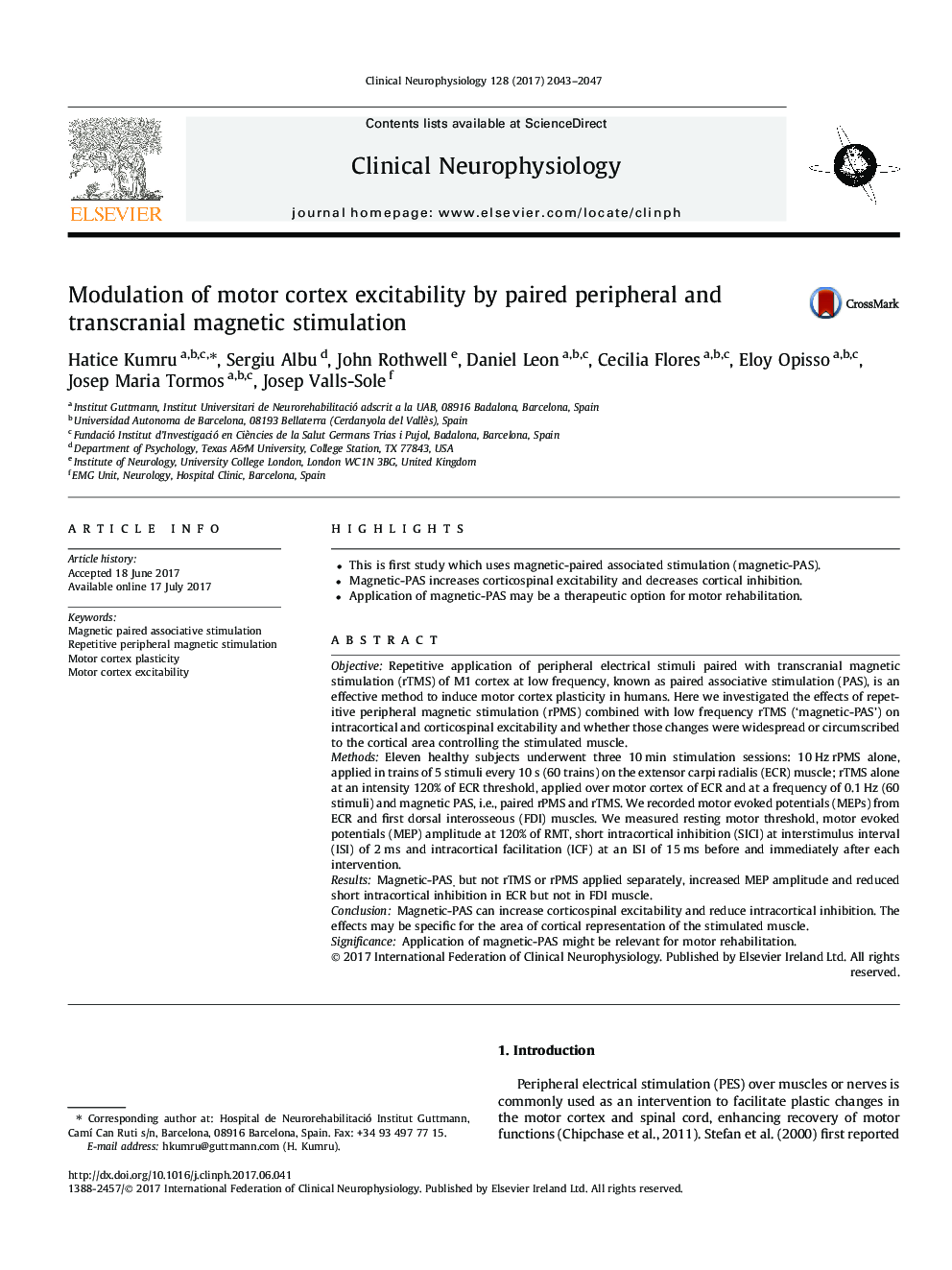| Article ID | Journal | Published Year | Pages | File Type |
|---|---|---|---|---|
| 5627715 | Clinical Neurophysiology | 2017 | 5 Pages |
â¢This is first study which uses magnetic-paired associated stimulation (magnetic-PAS).â¢Magnetic-PAS increases corticospinal excitability and decreases cortical inhibition.â¢Application of magnetic-PAS may be a therapeutic option for motor rehabilitation.
ObjectiveRepetitive application of peripheral electrical stimuli paired with transcranial magnetic stimulation (rTMS) of M1 cortex at low frequency, known as paired associative stimulation (PAS), is an effective method to induce motor cortex plasticity in humans. Here we investigated the effects of repetitive peripheral magnetic stimulation (rPMS) combined with low frequency rTMS ('magnetic-PAS') on intracortical and corticospinal excitability and whether those changes were widespread or circumscribed to the cortical area controlling the stimulated muscle.MethodsEleven healthy subjects underwent three 10 min stimulation sessions: 10 Hz rPMS alone, applied in trains of 5 stimuli every 10 s (60 trains) on the extensor carpi radialis (ECR) muscle; rTMS alone at an intensity 120% of ECR threshold, applied over motor cortex of ECR and at a frequency of 0.1 Hz (60 stimuli) and magnetic PAS, i.e., paired rPMS and rTMS. We recorded motor evoked potentials (MEPs) from ECR and first dorsal interosseous (FDI) muscles. We measured resting motor threshold, motor evoked potentials (MEP) amplitude at 120% of RMT, short intracortical inhibition (SICI) at interstimulus interval (ISI) of 2 ms and intracortical facilitation (ICF) at an ISI of 15 ms before and immediately after each intervention.ResultsMagnetic-PAS, but not rTMS or rPMS applied separately, increased MEP amplitude and reduced short intracortical inhibition in ECR but not in FDI muscle.ConclusionMagnetic-PAS can increase corticospinal excitability and reduce intracortical inhibition. The effects may be specific for the area of cortical representation of the stimulated muscle.SignificanceApplication of magnetic-PAS might be relevant for motor rehabilitation.
